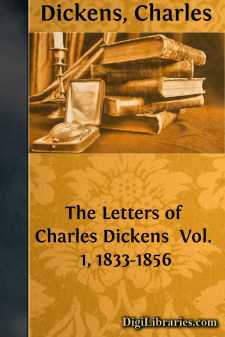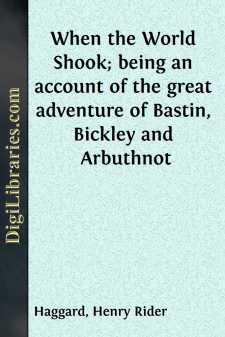Categories
- Antiques & Collectibles 13
- Architecture 36
- Art 48
- Bibles 22
- Biography & Autobiography 813
- Body, Mind & Spirit 142
- Business & Economics 28
- Children's Books 17
- Children's Fiction 14
- Computers 4
- Cooking 94
- Crafts & Hobbies 4
- Drama 346
- Education 46
- Family & Relationships 57
- Fiction 11829
- Games 19
- Gardening 17
- Health & Fitness 34
- History 1377
- House & Home 1
- Humor 147
- Juvenile Fiction 1873
- Juvenile Nonfiction 202
- Language Arts & Disciplines 88
- Law 16
- Literary Collections 686
- Literary Criticism 179
- Mathematics 13
- Medical 41
- Music 40
- Nature 179
- Non-Classifiable 1768
- Performing Arts 7
- Periodicals 1453
- Philosophy 64
- Photography 2
- Poetry 896
- Political Science 203
- Psychology 42
- Reference 154
- Religion 513
- Science 126
- Self-Help 84
- Social Science 81
- Sports & Recreation 34
- Study Aids 3
- Technology & Engineering 59
- Transportation 23
- Travel 463
- True Crime 29
Sort by:
TO WILLIAM LLOYD GARRISON CHAMPION of those who groan beneathOppression's iron handIn view of penury, hate, and death,I see thee fearless stand.Still bearing up thy lofty brow,In the steadfast strength of truth,In manhood sealing well the vowAnd promise of thy youth. Go on, for thou hast chosen well;On in the strength of God!Long as one human heart shall swellBeneath the tyrant's rod.Speak in...
more...
by:
George Gilfillan
THE POETICAL WORKS OF SAMUEL JOHNSON. THE LIFE OF SAMUEL JOHNSON. We feel considerable trepidation in beginning a life of Johnson, not so much on account of the magnitude of the man—for in Milton, and one or two others, we have already met his match—but on account of the fact that the field has been so thoroughly exhausted by former writers. It is in the shadow of Boswell, the best of all...
more...
It is very seldom that mere ordinary people like John and myself secure ancestral halls for the summer. A colonial mansion, a hereditary estate, I would say a haunted house, and reach the height of romantic felicity—but that would be asking too much of fate! Still I will proudly declare that there is something queer about it. Else, why should it be let so cheaply? And why have stood so long...
more...
by:
Charles Dickens
PREFACE.Weintend this Collection of Letters to be a Supplement to the "Life of Charles Dickens," by John Forster. That work, perfect and exhaustive as a biography, is only incomplete as regards correspondence; the scheme of the book having made it impossible to include in its space any letters, or hardly any, besides those addressed to Mr. Forster. As no man ever expressedhimselfmore in his...
more...
PRICE OF ADMIRALTY"O mort, vieux capitaine, il est temps! levons l'ancre!Ce pays nous ennuie, O mort! Appareillons!" I CLAIRE DE WISSANT, wife of Jacques de Wissant, Mayor of Falaise, stood in the morning sunlight, graceful with a proud, instinctive grace of poise and gesture, on a wind-blown path close to the edge of the cliff. At some little distance to her left rose the sloping, mansard...
more...
by:
John Galsworthy
ACT I SCENE I The scene is a well-lighted, and large, oak-panelled hall, with an air of being lived in, and a broad, oak staircase. The dining-room, drawing-room, billiard-room, all open into it; and under the staircase a door leads to the servants' quarters. In a huge fireplace a log fire is burning. There are tiger-skins on the floor, horns on the walls; and a writing-table against the wall...
more...
CHAPTER XIV. NELSON TEMPORARILY COMMANDER-IN-CHIEF IN THE MEDITERRANEAN.—RELIEVED BY LORD KEITH.—APPLIES TO RETURN TO ENGLAND ON ACCOUNT OF ILL HEALTH. AUGUST, August 1799—JUNE, 1800. AGE, 41. Upon Keith's departure, the command in the Mediterranean devolved upon Nelson, who for some time remained in doubt of the fact, but with his usual promptitude acted as if all depended upon himself....
more...
by:
Anonymous
CHAPTER I.BESSIE AND I AND BESSIE’S MOTHER. “Why, Charlie, you sha’n’t talk so about my mother! I won’t allow it.” “It does sound a little rough, my dear; but I can’t help it. She does exasperate me so. She doesn’t show a proper deference for your husband, my dear. We are married now, and she ought to give up her objections to me. I can’t be expected to place myself in her leading...
more...
Chapter I. Arbuthnot Describes Himself I suppose that I, Humphrey Arbuthnot, should begin this history in which Destiny has caused me to play so prominent a part, with some short account of myself and of my circumstances. I was born forty years ago in this very Devonshire village in which I write, but not in the same house. Now I live in the Priory, an ancient place and a fine one in its way, with its...
more...
CHAPTER I EARLIEST MEMORIES Preamble—The house where I was born—The singular Ombu tree—A tree without a name—The plain—The ghost of a murdered slave—Our playmate, the old sheep-dog—A first riding-lesson—The cattle: an evening scene—My mother—Captain Scott—The hermit and his awful penance. It was never my intention to write an autobiography. Since I took to writing in my middle...
more...











